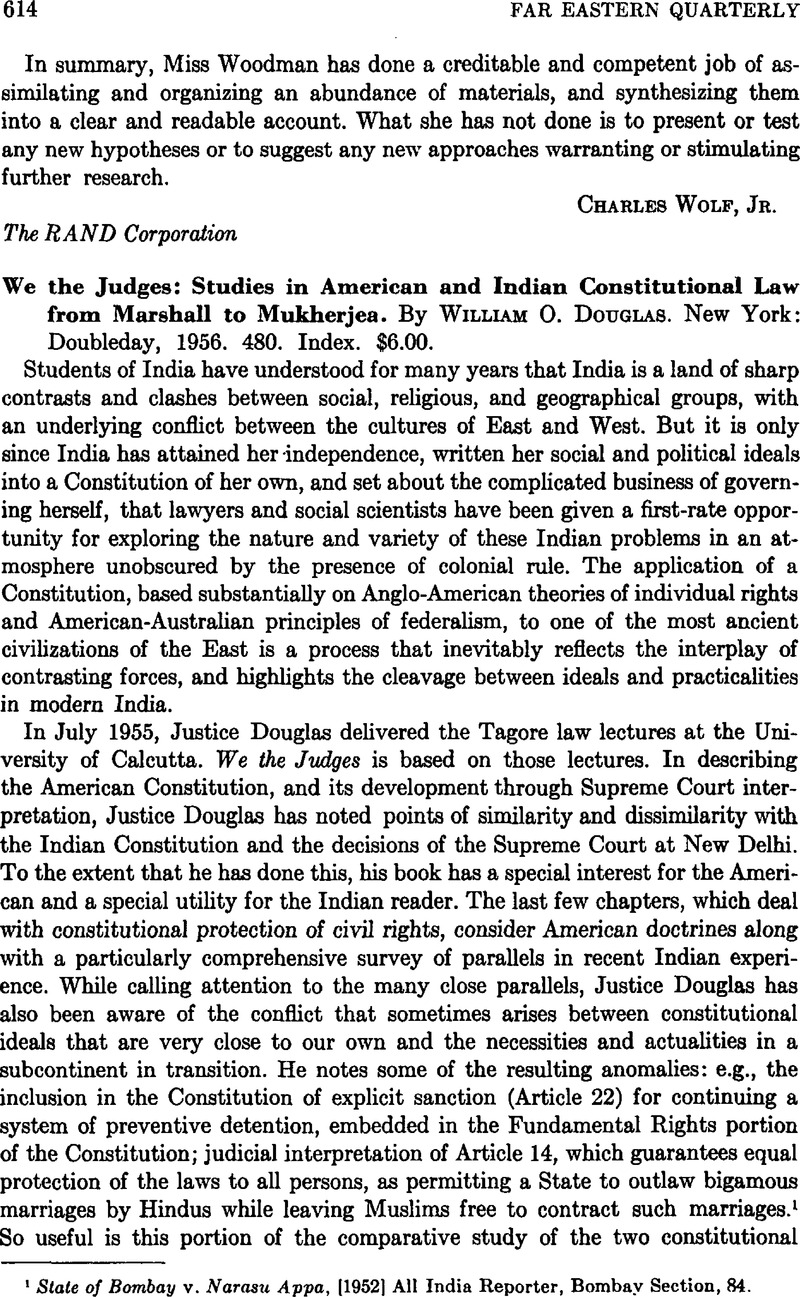No CrossRef data available.
Published online by Cambridge University Press: 23 March 2011

1 State of Bombay v. Narasu Appa, [1952] All India Reporter, Bombay Section, 84.Google Scholar
2 At least three of the High Courts in India have put their stamp of approval on a passage from Julian Huxley's “Economic Man and Social Man,” which advocates a retranslation of the democratic idea of freedom to remove its nineteenth-century meaning of individual liberty in the economic sphere and adjust it to new conceptions of social duties and responsibilities. See Bezbarua v. State of Assam, [1954] Indian Law Reports, Assam Series, 166, 182–2Google Scholar; South Travancore Electrical Workers' Union v. Nagorcoil Electric Supply Corp., [1954] Indian Law Reports, Travancore-Cochin Series, 322, 332Google Scholar; Sree Meenakshi Mills Ltd. v. State of Madras, [1951] All India Reporter, Madras Section, 974, 979.Google Scholar
3 See Bijay Cotton Mills Ltd. v. State of Ajmer, [1955] All India Reporter, Supreme Court Section, 33, citing Article 43 in support of the constitutionality of minimum wage legislation.
4 See, e.g., discussion of Adair v. United States, Lochner v. New York, and Coppage v. Kansas in East India Industries (Madras) Ltd. v. The Industrial Tribunal, Fort St. George, [1955] All India Reporter, Madras Section, 242.Google Scholar
5 3rd. ed. Calcutta: S. C. Sarkar & Sons Ltd., 1955.
6 Madras: The Srinivasa Sastri Institute of Politics, 1955.